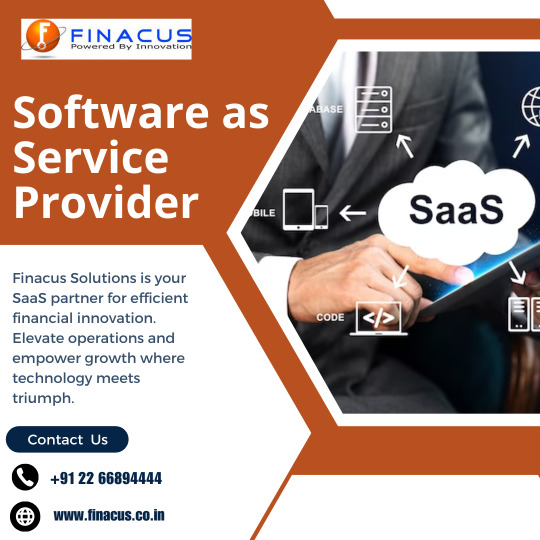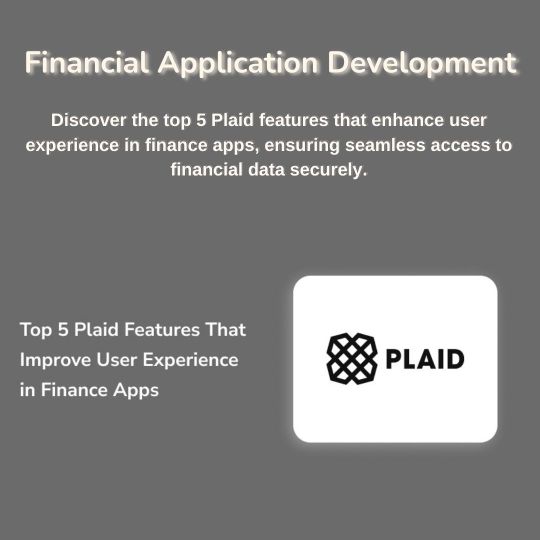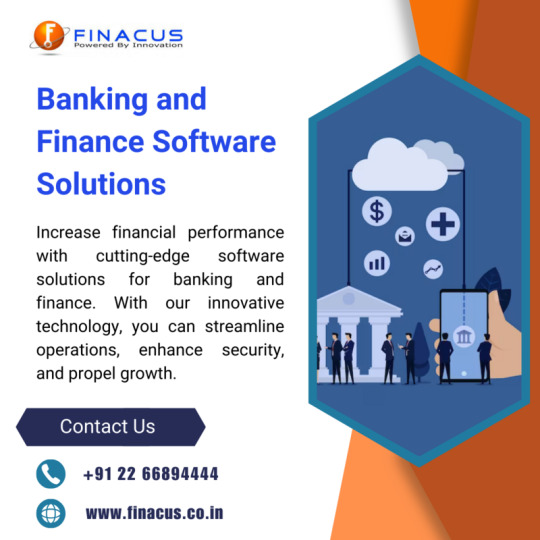#financial software companies
Explore tagged Tumblr posts
Text

#core banking solution providers#banking solutions#enterprise solutions services#digital payment solution#financial software companies#aeps software provider#banking as a service provider
0 notes
Text
Cryptocurrency exchange development company
Metaboxfy, India's leading cryptocurrency exchange development company, empowers you to create your own cryptocurrency exchange software. With Metaboxfy, you can establish a platform that functions like any other exchange, but with the added advantage of a finely tuned algorithm that ensures precise and rapid transaction processing. Trust the expertise of Metaboxfy, the premier Cryptocurrency exchange development company in India.
Check It Out!
#Cryptocurrency Exchange Development#Metaboxfy#Cryptocurrency Exchange Software#Rapid Transaction Processing#Cryptocurrency Development Company#Blockchain Technology#Crypto Trading Platform#Financial Technology
1 note
·
View note
Text
Financial Software App Development Company—Rexett
Would you be able to find some useful financial software solutions? Discover Rexett, a trusted financial software app development company delivering custom and scalable applications tailored to your business needs. Rexett specializes in innovative solutions to streamline financial processes, from secure payment systems to advanced data analytics. Explore how our expert team transforms your ideas into powerful software. Visit us today at https://www.rexett.com/financial-software-app-development-company/ and empower your business with the best in financial technology.
#financial software app development company#financial app development#financial software development services#financial software mobile app development
0 notes
Text
Top 5 Plaid Features That Improve User Experience in Finance Apps
Plaid offers several standout features that significantly enhance user experience in finance apps by providing secure and seamless access to financial data. Among its top features are its robust bank account linking capabilities, which allow users to connect their accounts quickly and effortlessly. Its transaction categorization tools deliver valuable insights by organizing spending data into meaningful categories. Plaid also ensures a high level of security with advanced encryption and tokenization methods, safeguarding user information. Its real-time balance checks enable better financial management, while its streamlined authentication process ensures a smooth and hassle-free experience. These features collectively make Plaid an essential tool for modern finance apps.

#Financial IT Services#financial technology services#financial services it solutions#IT solutions for financial services#financial software development#financial software engineering#financial software development company#financial software development services#financial software development agency#custom financial software development#financial development company#finance software development companies#finance software development company#finance software development services#software development finance#finance software development#financial software development companies#financial mobile app development company#financial mobile app development#financial application development#fintech developments#fintech development company
1 note
·
View note
Text
Choose SPK Auditors and Accountants for Zoho Creator Implementation in UAE!
Get professional advice and efficient implementation of Zoho Creator. Contact SPK today! Contact now +971558572143
#auditors in uae#annual statutory audit#audit firms in uae#audit services in dubai#auditing companies in dubai#zoho crm#zoho accounting software#zoho finance partners#zoho implementation partner#Zoho financial plus#zoho software accounting
0 notes
Text
OpenTeQ: Streamlined NetSuite Solutions Provider for Every Industry

NetSuite, the world’s leading cloud ERP solution, is revolutionizing the way businesses operate by providing robust tools to manage financials, customer relationships, and operations. For manufacturing companies and other industries, leveraging the capabilities of NetSuite requires the support of experienced solution providers and development companies. This article delves into the pivotal roles of NetSuite Solution Providers, top NetSuite services, NetSuite development expertise, consultation offerings, and specialized NetSuite portals for manufacturing businesses.
NetSuite Solutions Provider: Your Strategic ERP Partner
NetSuite Solution Providers play an essential role in delivering tailored ERP solutions that address diverse business needs. These providers offer everything from system evaluation to implementation, customization, and long-term support. By aligning NetSuite’s capabilities with organizational objectives, solution providers enable businesses to achieve seamless operations, enhance decision-making, and improve productivity.
NetSuite Development Company: Crafting Tailored Solutions
A NetSuite Development Company specializes in creating bespoke solutions that extend NetSuite’s core functionalities. From building custom workflows to integrating industry-specific modules, these companies ensure that businesses can address unique challenges and streamline their operations. NetSuite Development company also focus on enhancing user experience and creating applications that leverage NetSuite’s powerful API capabilities.
NetSuite Consultation: Expertise for Strategic Decisions
NetSuite consultation services guide businesses in making informed decisions about their ERP strategies. Experienced consultants analyze current processes, identify inefficiencies, and recommend the best NetSuite solutions to drive growth. From initial assessments to implementation roadmaps, NetSuite consultation services ensure businesses get the most out of their ERP investment.
NetSuite Portals for Manufacturing: A Game-Changer for Efficiency
For manufacturing companies, NetSuite portals offer unparalleled visibility and control over production workflows, inventory, and supply chain management. These portals provide real-time insights into every aspect of the manufacturing process, enabling businesses to reduce lead times, minimize costs, and ensure product quality. NetSuite’s ability to integrate with other systems and provide a unified platform makes it an indispensable tool for manufacturers aiming for operational excellence.
Conclusion
OpenTeQ is a trusted NetSuite Solutions Provider, offering end-to-end services to empower businesses with seamless ERP integration and customization. As a Top NetSuite Services Provider, OpenTeQ specializes in delivering tailored solutions, ensuring maximum efficiency and ROI for diverse industries. As a leading NetSuite Development Company, OpenTeQ provides advanced development expertise, creating custom workflows, integrations, and automation to meet unique business needs.
Through comprehensive NetSuite Consultation, OpenTeQ’s experts guide organizations from strategy formulation to post-deployment optimization, ensuring smooth transitions and enhanced productivity. With specialized NetSuite Portals for Manufacturing, OpenTeQ enables manufacturers to streamline operations, improve supply chain coordination, and achieve real-time visibility, driving innovation and operational excellence. Partner with OpenTeQ to unlock the full potential of NetSuite and achieve long-term business success.
#IndustryActivation#Industry Activation NetSuite#NetSuite Industry Activation#NetSuite for Manufacturing#Manufacturing ERP & Management Software#NetSuite ERP Software for Manufacturing Companies#NetSuite for Manufacturers#NetSuite ERP for Manufacturers#Manufacturing with NetSuite#NetSuite Solutions for Manufacturing#NetSuite Portals for Manufacturing#NetSuite Services#NetSuite Services Company#Top NetSuite Services Provider#NetSuite Support Services#NetSuite Solutions Provider#NetSuite Development Company#NetSuite Development#NetSuite Developer#NetSuite Consultation#NetSuite Consulting Services#NetSuite Accounting Services#NetSuite Financial Software#NetSuite BPO Accounting Services
0 notes
Text
Top Game-Changing Technologies Powering the Future of Fintech

The financial technology (fintech) sector is rapidly transforming, driven by innovative technologies that streamline processes, enhance customer experiences, and create new opportunities. These advancements, from artificial intelligence to blockchain, are revolutionizing financial services, empowering businesses to offer secure, efficient, and personalized solutions. CodeRower, with its forward-thinking approach and deep expertise, is at the forefront of this transformation, enabling clients to leverage the latest technologies effectively. Let’s explore the top technologies propelling the fintech revolution and shaping the future of finance.
1. Artificial Intelligence (AI) and Machine Learning (ML)
AI and ML have become fundamental in fintech, especially in decision-making and predictive analysis. These technologies help fintech companies process massive datasets, enabling them to provide customized services, detect fraud, and make data-driven decisions.
Customer Personalization: AI and ML help fintech firms tailor recommendations for products, loans, and investment portfolios by analyzing customer behavior and preferences.
Fraud Detection and Prevention: Machine learning algorithms monitor transaction patterns and detect anomalies in real-time, helping prevent fraud and unauthorized access.
Credit Scoring: Traditional credit scores have limitations, especially for people with minimal credit history. AI-driven credit scoring models consider alternative data, providing more accurate assessments for creditworthiness.
Example: Companies like PayPal and Square leverage AI to enhance user experience and improve security, maintaining a balance between frictionless access and robust protection.
CodeRower integrates AI-driven solutions to provide personalized customer experiences, from advanced credit scoring models to real-time fraud detection. By leveraging these tools, CodeRower helps financial organizations predict trends, identify risks, and improve customer engagement.
2. Blockchain Technology
Blockchain, the technology underlying cryptocurrencies, offers a decentralized approach to transactions, bringing security and transparency. It reduces the need for intermediaries and minimizes transaction costs, making it ideal for financial applications.
Cryptocurrencies and Digital Payments: Blockchain allows for fast, secure, and borderless payments. Cryptocurrencies like Bitcoin and Ethereum have popularized the idea of digital money.
Smart Contracts: These self-executing contracts automate transactions when predefined conditions are met, reducing delays and minimizing risks associated with manual processing.
Tokenization: By converting assets into digital tokens, blockchain enables fractional ownership and faster trading, especially useful in real estate and stock markets.
Example: Ripple and Stellar are blockchain-based payment platforms that provide cross-border payment solutions, significantly lowering transaction times and fees.
CodeRower designs secure and scalable blockchain-based solutions, including digital payment systems and smart contracts, that streamline operations and enhance transparency for clients. By focusing on decentralized finance and asset tokenization, CodeRower helps businesses reduce operational costs and drive growth through trustless, secure platforms.
3. Decentralized Finance (DeFi)
Decentralized Finance, or DeFi, leverages blockchain to deliver open, permissionless financial services without traditional intermediaries like banks. By using DeFi applications, users can lend, borrow, and trade assets directly on decentralized platforms.
Peer-to-Peer Lending and Borrowing: DeFi platforms like Aave and Compound enable users to lend or borrow assets, earning interest or gaining liquidity without a middleman.
Decentralized Exchanges (DEXs): Unlike traditional exchanges, DEXs allow users to trade cryptocurrencies directly with one another, improving privacy and control over funds.
Stablecoins: DeFi has also driven the growth of stablecoins (digital assets pegged to stable assets like the U.S. dollar), which offer price stability in the volatile cryptocurrency space.
Example: Uniswap, a popular DEX, allows users to trade directly from their digital wallets, reducing reliance on centralized exchanges and increasing transaction speed.
CodeRower assists clients in building robust DeFi applications that enable peer-to-peer lending, decentralized exchanges, and digital wallet services. These solutions empower businesses to offer financial products that increase accessibility and align with the growing demand for decentralized financial options.
4. Open Banking
Open Banking mandates financial institutions to share customer data (with consent) with third-party providers, fostering competition and innovation. It aims to give customers control over their data, enabling them to access better financial products.
Enhanced Services and Product Comparison: Open banking allows users to compare financial products and services across multiple providers, leading to more informed decisions.
Personalized Financial Advice: By aggregating financial data, third-party providers can offer more tailored insights and advice.
Streamlined Payments: Open banking allows for direct bank-to-bank transfers, reducing transaction costs and improving processing times.
Example: European open banking regulations, like PSD2, have driven the growth of third-party apps such as Mint and Plaid, which provide financial tracking and planning solutions.
CodeRower develops secure APIs that facilitate seamless data sharing between banks and third-party providers, allowing clients to meet regulatory standards and build more responsive, personalized financial services. By enhancing customer experience, CodeRower’s open banking solutions increase client retention and expand market reach.
5. Robotic Process Automation (RPA)
Robotic Process Automation (RPA) automates repetitive tasks, freeing employees to focus on more strategic activities. In fintech, RPA reduces human error and speeds up processes.
Data Entry and Compliance: RPA bots streamline data entry and ensure regulatory compliance, minimizing the risk of manual mistakes.
Customer Support: Automated chatbots use RPA to answer common customer queries, reducing wait times and improving user experience.
Loan Processing: RPA accelerates loan approvals by automating document verification and other administrative tasks.
Example: Many banks employ RPA to automate Know Your Customer (KYC) and Anti-Money Laundering (AML) checks, saving time and resources while ensuring compliance.
CodeRower applies RPA technology to streamline tasks like data entry, compliance, and customer support. With these automated processes, financial institutions can achieve faster turnaround times, ensure data accuracy, and enhance compliance, all while freeing up human resources for higher-value tasks.
6. Biometric Authentication
Security is paramount in fintech, and biometric authentication provides a robust, user-friendly solution. Technologies like fingerprint, facial, and voice recognition reduce the risk of unauthorized access.
Enhanced Security: Biometrics offer a unique identifier, making it challenging for unauthorized users to access accounts.
Improved User Experience: Password-free logins enhance convenience and reduce the chances of password theft.
Adaptation for Mobile: Mobile devices support biometric authentication, making it easier for users to secure their devices and access banking apps safely.
Example: Banks and fintech apps often use fingerprint and facial recognition for mobile app logins, ensuring that only the account holder has access.
CodeRower integrates biometric authentication systems into mobile banking apps and online platforms, enhancing security and improving the user experience. With a focus on advanced authentication mechanisms, CodeRower helps clients ensure that only verified users have access to sensitive financial data.
7. 5G Connectivity
With the advent of 5G, financial services can now operate faster and more reliably, especially on mobile devices. The improved connectivity supports real-time transactions, data streaming, and advanced app features.
Faster Transactions: 5G enables instant money transfers and low-latency trading, reducing delays.
Enhanced Mobile Banking: Banks can now offer more complex functionalities on mobile apps, such as video consultations and real-time customer support.
Edge Computing: 5G, coupled with edge computing, allows data processing closer to the source, which can reduce data transfer times and improve security.
Example: China’s 5G rollout has fueled growth in mobile payment systems, allowing apps like Alipay and WeChat Pay to deliver seamless, fast user experiences.
CodeRower leverages 5G’s capabilities to create high-performance mobile applications that support instant transactions and real-time data processing. By building applications optimized for 5G, CodeRower enables financial institutions to offer seamless and responsive mobile experiences, meeting the demands of today’s tech-savvy users.
8. Quantum Computing
Quantum computing, while still in its early stages, has enormous potential in fintech. Quantum processors can solve complex calculations exponentially faster than traditional computers, making them ideal for applications requiring significant computational power.
Risk Assessment and Portfolio Optimization: Quantum computing could improve accuracy in analyzing risk and optimizing investment portfolios.
Encryption and Security: Quantum cryptography promises a higher level of security, crucial for safeguarding sensitive financial data.
Fraud Detection: Quantum algorithms can potentially detect patterns and anomalies faster, identifying fraud attempts with greater accuracy.
Example: Although still largely experimental, banks like JPMorgan and IBM are exploring quantum computing to strengthen data encryption and improve financial forecasting.
Although quantum computing is an emerging field, CodeRower is staying ahead by researching its potential applications in financial modeling and data encryption. CodeRower aims to provide clients with the latest advancements, from high-speed transaction processing to improved data protection, preparing for the future of fintech security and performance.
Conclusion
The fintech revolution, driven by AI, blockchain, DeFi, and other emerging technologies, is transforming traditional financial services into a dynamic and customer-focused ecosystem. As these technologies mature, fintech will continue to innovate, offering faster, safer, and more inclusive financial solutions that empower consumers and businesses alike. The future of fintech is bright, and as these advancements continue to unfold, financial services will become even more integral to the digital landscape.
Ready to take the next step? Contact us to see how CodeRower can help you unlock new possibilities in fintech innovation. Let’s Connect!
#fintech development company#fintech software#fintech#finance#financial#financial services#software development companies#software development#app development#web app development#web development#ios app development#blockchain development#game development#custom app development#android app development#custom software development
0 notes
Text
IT Consulting Services: Bridging the Gap Between Financial Software and Business Needs
In today's fast-paced financial landscape, businesses require advanced software solutions to remain competitive. IT consulting services play a pivotal role in aligning financial software with evolving business needs. This blog explores how IT consulting services enhance various financial processes, including trade finance, Islamic finance, and lending systems like Loan IQ, supported by financial technology partners.

The Role of IT Consulting in Financial Transformation
IT consulting services help financial institutions adopt the right technologies by analyzing their requirements and recommending suitable solutions. These services align business goals with technology strategies, ensuring seamless operations, enhanced efficiency, and improved decision-making.
Key areas supported by IT consulting include:
Trade finance automation
Implementation of Loan IQ and other lending systems
Islamic finance compliance through tailored financial software
Integration of fintech solutions with legacy systems
Modernizing Trade Finance with Financial Software
Trade finance involves multiple parties, paperwork, and cross-border transactions. Financial software, guided by IT consulting firms, automates and streamlines these processes.
Benefits include:
Digital documentation and process automation
Real-time transaction tracking
Enhanced risk management and compliance
IT consulting companies ensure the seamless integration of financial software within existing systems, allowing institutions to reduce manual errors and expedite trade processes.
Loan IQ: Simplifying Complex Lending Processes
Loan IQ is a powerful financial software for managing syndicated loans, bilateral loans, and other lending services. However, effective deployment requires specialized expertise.
IT consulting services assist in:
Implementing Loan IQ modules based on business needs
Customizing the platform for local and international lending rules
Providing ongoing support and upgrades to the system
With their expertise, IT service companies enable financial institutions to optimize loan management, improve borrower experience, and ensure compliance.
Financial Technology Partners: Driving Innovation and Growth
Financial technology (fintech) partners collaborate with consulting firms to bring advanced tools to the financial sector. These partnerships accelerate innovation by integrating fintech solutions like AI, blockchain, and big data analytics.
Examples of fintech-driven changes include:
Automated credit scoring for loan approvals
Blockchain-powered trade finance platforms
AI-based risk assessment for Islamic lending
Consulting services ensure smooth collaboration between financial institutions and fintech providers, fostering innovation and business growth.
Islamic Finance and Lending: Technology for Compliance and Growth
Islamic finance operates under unique principles, such as the prohibition of interest (riba) and investments in unethical activities. IT consulting services customize financial software to meet these requirements while driving operational efficiency.
Examples include:
Development of Sharia-compliant lending modules
Automated profit-and-loss sharing calculations
Integration with Islamic fintech tools for better compliance
These consulting services enable institutions to offer Islamic lending solutions efficiently while maintaining Sharia compliance.
The Value of IT Service Companies in the Financial Sector
IT service companies offer more than just technical support; they provide strategic insights and solutions that align with financial institutions' long-term goals. Their involvement ensures:
Seamless integration of financial software across departments
Continuous monitoring and support for critical systems
Data security and regulatory compliance
These services enable financial organizations to remain agile and competitive, meeting the needs of both customers and regulators.
Conclusion: A Collaborative Future of Finance and Technology
IT consulting services act as the bridge between financial software and business needs, helping institutions adopt technologies like Loan IQ, trade finance platforms, and Islamic lending solutions. By collaborating with financial technology partners, these consulting firms ensure that financial organizations stay ahead in a competitive market.
As the financial landscape evolves, the synergy between IT service companies, financial software, and fintech partners will become increasingly essential for driving growth, innovation, and compliance.
#financial technology#loan iq#financial software#financial technology partners#it consulting services#it service company#Islamic finance#Islamic lending#trade finance
0 notes
Text
A custom CRM for a financial company, built for the expansion of existing business logic, with the new features a client lacked previously. The modernized financial CRM system offers better customer relationship management, stronger client loyalty, and improved operational efficiency.
Industry: FinTech��
Tech stack: MySQL, PHP, React.js
#fintech software development company#fintech app development company#fintech industry#fintech#crm development#crm integration#crm software#crm#financial#outsourcing#software development#web development#staff augmentation#custom software development#it staff augmentation#custom software solutions#it staffing company#it staff offshoring#custom software
0 notes
Text
Maximizing Business Efficiency with OpenTeQ Advanced NetSuite Support

Powerful cloud-based ERP solutions, like NetSuite, have become quite indispensable in today's fast-paced company environment for managing operations effectively. However, implementing the software will not suffice for such a powerful system. To reap the true advantages of NetSuite, an organization needs to have access to ongoing, state-of-the-art support. Here is how NetSuite Staffing, a dedicated NetSuite Support Team, and Advanced NetSuite Support help businesses manage complexity and ensure long-term success.
The Importance of Advanced NetSuite Support
NetSuite is a dynamic platform capable of handling a wide range of business functions, including financial management, customer relationship management (CRM), e-commerce, inventory, and supply chain management. However, the platform's expansive capabilities can pose challenges for businesses without expert guidance. This is where Advanced NetSuite Support plays a crucial role.
Advanced support goes beyond basic troubleshooting. It offers proactive system optimization, customized solutions, and strategic insights tailored to specific business needs. A dedicated NetSuite Support Team that understands the nuances of your business can ensure that your system remains fine-tuned, responsive, and adaptable to change, whether that’s driven by market shifts, growth, or evolving operational needs.
The Role of a Dedicated NetSuite Support Team
A NetSuite Support Team serves as the backbone of your ERP system’s success. This team comprises experts who provide real-time assistance, system monitoring, and problem resolution. They help you identify potential bottlenecks before they impact your operations, ensuring seamless business continuity.
More importantly, a dedicated support team not only addresses immediate concerns but also works with you to build long-term strategies that align with your business goals. Their deep knowledge of the NetSuite ecosystem allows them to recommend enhancements, integrations, and third-party solutions that can optimize workflows and increase efficiency.
The effectiveness of a support team lies in their ability to deliver personalized service. They understand your system setup, the customizations involved, and the specific requirements of your industry, which enables them to provide targeted solutions rather than one-size-fits-all fixes.
The Value of NetSuite Ongoing Support
NetSuite is constantly evolving, with regular updates, feature enhancements, and security improvements. Keeping up with these changes can be overwhelming for in-house teams, particularly in growing businesses. NetSuite Ongoing Support ensures that your system stays up-to-date with the latest developments without disrupting your operations.
Ongoing support includes not only the installation of updates but also training and advising staff on new functionalities. As your business grows and diversifies, ongoing support ensures that your NetSuite solution scales with you. Whether you need to integrate new tools, adapt to market changes, or refine your processes, a continuous support plan keeps your system agile and responsive.
Moreover, NetSuite Ongoing Support helps businesses reduce downtime. With a team of experts constantly monitoring performance and identifying areas for improvement, businesses can minimize disruptions, avoid costly errors, and maintain peak performance.
Strategic NetSuite Staffing for Business Growth
NetSuite staffing involves hiring or contracting NetSuite experts who can be embedded within your organization. These professionals possess the technical knowledge needed to manage the system on a day-to-day basis, ensuring it aligns with the company's evolving needs. By having dedicated staff who are focused solely on NetSuite, businesses can experience quicker response times, greater flexibility, and tailored optimizations that an external team may not always provide.
NetSuite Staffing is particularly valuable during periods of growth, mergers, or expansion into new markets. Whether it’s ensuring compliance with regional regulations or customizing workflows to match new operational models, having on-hand NetSuite experts provides businesses with the agility and confidence to scale.
Conclusion
Investing in Advanced NetSuite Support, a dedicated NetSuite Support Team, and NetSuite Staffing is key to unlocking the full potential of this powerful ERP system. By ensuring ongoing optimization, staying on top of updates, and having access to the right expertise, businesses can harness NetSuite to drive efficiency, reduce costs, and fuel long-term growth. Whether you're just starting with NetSuite or have been using it for years, having the right support infrastructure in place is essential for sustained success.
OpenTeQ’s Advanced NetSuite Support offers businesses a comprehensive solution to maximize their ERP investment. With a highly skilled support team that provides tailored, proactive assistance, OpenTeQ ensures your NetSuite system operates at peak performance. From system optimization and ongoing updates to customized solutions that align with your business goals, OpenTeQ empowers companies to streamline processes, enhance efficiency, and adapt to growth. By leveraging their advanced support services, businesses can reduce downtime, stay agile in a competitive market, and achieve long-term success with NetSuite.
#Advanced NetSuite Support#NetSuite Support Team#NetSuite Ongoing Support#NetSuite Support Services#NetSuite Staffing#NetSuite Services#NetSuite Solutions Provider#NetSuite Implementation partner#NetSuite ERP Consulting#NetSuite ERP Implementation#NetSuite Consultation#NetSuite Integration Platform#NetSuite Implementation Consultant#NetSuite Technical Consultant#NetSuite Development#NetSuite Integration Consultants#NetSuite Developer#NetSuite Implementation Company#NetSuite Development Company#NetSuite ERP Support#NetSuite Project Implementation#NetSuite ERP Solution Provider#NetSuite Accounting Services#NetSuite Financial Software#NetSuite SP Partner#NetSuite Solution Provider Partner#NetSuite BPO Partner#NetSuite Customization#NetSuite Data Migration#NetSuite Consulting
0 notes
Text

#core banking solution providers#banking and finance software solutions#enterprise solutions services#financial software companies#banking as a service provider#aeps software provider
0 notes
Text

Discover the benefits of working with a fee-based financial advisor and how this model can offer you transparent and unbiased financial advice. Vantage Financial Partners explains the structure behind fee-based services, helping you understand how advisors are compensated and why it aligns with your best interests for long-term financial planning.
#financial planner in wisconsin#wealth management consultant#top rated financial planning firm#senior wealth advisor in wisconsin#college savings plan#fiduciary financial planner#best financial advisors in wisconsin#educational savings plan#529 college savings plan#fee-based financial advisor#529 plan#financial advisor reno nv#financial advisor software#company registration#financial advisor near me#income tax return#investing#finance#financialplanning
0 notes
Text
Top Features Every Fintech App Should Have In 2024
#Fintech#Fintech app development#development#app development#software#financial#best financial bussiness#top finance bussiness#business#fintech app#app development company
1 note
·
View note
Text
Creating financial software involves understanding user needs and regulatory requirements, choosing secure technologies, and designing intuitive interfaces. Ensure robust testing for vulnerabilities and provide ongoing updates and support. With a strategic approach, you can build reliable, scalable software that meets financial industry standards and user expectations.
#Financial Software#financial software development#Guide#Fintech software development company#software development company in India
0 notes
Text
OpenTeQ NetSuite Consulting Services: Aligning Technology with Your Business Goals

NetSuite Consulting Services provide expert guidance to businesses looking to optimize their operations with NetSuite's comprehensive ERP platform. These services are tailored to meet the unique needs of each organization, ensuring seamless implementation, efficient workflows, and enhanced system utilization. Consultants work closely with businesses to analyze their existing processes, identify bottlenecks, and design custom solutions that align with their goals. From strategic planning to post-implementation reviews, NetSuite Consulting Services are crucial for organizations aiming to maximize their ERP investment.
NetSuite Developers: The Backbone of Customization
A NetSuite Developer plays a vital role in customizing and enhancing the functionality of the NetSuite platform to meet specific business needs. They leverage SuiteScript, SuiteFlow, and SuiteTalk to build custom applications, automate workflows, and integrate third-party solutions with NetSuite. NetSuite Developers ensure that the platform aligns perfectly with the organization’s processes, enabling businesses to achieve greater efficiency and scalability. Their expertise in creating bespoke solutions helps companies unlock the full potential of their NetSuite implementation.
NetSuite Support Services: Ensuring Business Continuity
NetSuite Support Services are essential for maintaining the performance and reliability of the ERP system. These services provide businesses with access to technical experts who can quickly resolve issues, manage system upgrades, and offer guidance on best practices. NetSuite Support Services teams ensure that the platform runs smoothly, minimizing downtime and disruptions. Services often include user training, regular health checks, and troubleshooting, empowering businesses to make the most of their ERP system while focusing on their core operations.
NetSuite Services Company: Partnering for Success
NetSuite Services Company is a trusted partner for businesses looking to implement, customize, and manage their NetSuite ERP solution. These companies offer a wide range of services, including consultation, system design, implementation, and ongoing support. With their industry expertise and deep understanding of NetSuite, they help businesses achieve their objectives efficiently. By providing end-to-end solutions, NetSuite Services Company ensures that clients receive personalized support, and a streamlined ERP experience tailored to their needs.
NetSuite Solutions for Manufacturing: Empowering Industry-Specific Operations
NetSuite Solutions for Manufacturing are designed to address the unique challenges faced by manufacturers, such as inventory management, production planning, and supply chain coordination. These solutions provide real-time visibility into operations, enabling manufacturers to make data-driven decisions and optimize their workflows. Features like demand planning, production scheduling, and quality control ensure that manufacturers can meet customer demands efficiently while minimizing waste. With NetSuite’s cloud-based platform, manufacturers gain a competitive edge through improved operational efficiency and enhanced customer satisfaction.
Conclusion
OpenTeQ stands out as a trusted partner for businesses seeking to harness the full potential of NetSuite through its comprehensive offerings. With OpenTeQ NetSuite Consulting Services, we provide expert guidance to streamline your operations and tailor the platform to your unique business needs. Our skilled NetSuite Developers ensure seamless customization and integration, delivering solutions that enhance efficiency and scalability. Through our dedicated NetSuite Support Services, we ensure your system runs smoothly, addressing technical issues and providing ongoing optimization.
As a leading NetSuite Services Company, OpenTeQ delivers end-to-end ERP solutions, from implementation to continuous management, ensuring success across industries. For manufacturers, our NetSuite Solutions for Manufacturing address specific operational challenges, enabling enhanced productivity and real-time visibility into operations. Partner with OpenTeQ to revolutionize your business processes and achieve sustainable growth with NetSuite.
#IndustryActivation#Industry Activation NetSuite#NetSuite Industry Activation#NetSuite for Manufacturing#Manufacturing ERP & Management Software#NetSuite ERP Software for Manufacturing Companies#NetSuite for Manufacturers#NetSuite ERP for Manufacturers#Manufacturing with NetSuite#NetSuite Solutions for Manufacturing#NetSuite Portals for Manufacturing#NetSuite Services#NetSuite Services Company#Top NetSuite Services Provider#NetSuite Support Services#NetSuite Solutions Provider#NetSuite Development Company#NetSuite Development#NetSuite Developer#NetSuite Consultation#NetSuite Consulting Services#NetSuite Accounting Services#NetSuite Financial Software#NetSuite BPO Accounting Services
0 notes
Text

How to Choose the Best Financial Software Development Partner
Digital innovation, new regulations, and changing consumer expectations are causing rapid change in the financial sector. As companies try to remain ahead in this cutthroat market, there is a greater need than ever for reliable and secure financial software solutions. Collaboration with a reputable and capable financial software development partner is essential for financial institutions and FinTech firms. The success or failure of their digital transformation projects may depend on this relationship.
Selecting the proper partner involves more than evaluating technical competence; it includes understanding the intricacies of financial industry compliance, appreciating the value of secure financial software, and locating a business with a track record of providing custom software development services suited to specific company needs.
Introduction
Financial institutions depend more on cutting-edge software solutions in today’s fast-paced economic environment, where technological innovation is essential to keep a competitive advantage. These solutions provide smooth interaction with other systems, guarantee regulatory compliance, improve consumer experiences, and streamline operations. However, creating reliable financial software is a complex undertaking that requires a thorough comprehension of the requirements and difficulties the sector faces. This is when working strategically with the appropriate software development company becomes essential.
Banks, insurance companies, investment firms, and other financial institutions, along with financial technology (FinTech) startups, must navigate a complex ecosystem marked by strict laws, constantly changing security risks and an unwavering demand for innovation and agility. For digital goods to be delivered successfully, they must select a financial software development partner who shares their vision and is aware of the specific challenges they encounter.
This guide provides financial sector decision-makers with the information they need to choose a finance software development partner. To select the best partner for your company, we will examine critical factors such as technical proficiency, comprehension of development processes, the firm’s financial compliance knowledge, and case studies in financial software.
Acknowledging the Unique Challenges Faced by the Financial Sector
Recognising the difficulties the financial sector faces is essential in choosing the finest financial software development partner. Businesses operating in the highly regulated financial industry are subject to many local, regional, and international laws. To name just a few, they are AML, PCI DSS, GDPR, and SOX. To guarantee that the solutions they provide are functional but also safe and compliant, a reputable financial software development business must be well-versed in these financial industry compliance regulations.
Security is a significant concern in the financial sector since it handles susceptible and private data. Developers must use multi-factor authentication, real-time monitoring, strong encryption, and frequent security audits to create secure financial software. If they don’t, they risk significant penalties, damage to their reputation, and data breaches.
Evaluating Technical Knowledge and Experience
Before partnering with a software development company, it is critical to assess its technical proficiency and finance industry experience. The creation of financial software is complex and necessitates a thorough grasp of several tools, frameworks, and technologies. The proficiency of a possible financial software development partner should be evident in several important domains, such as:
Essential Banking Systems: Software development for managing accounts, executing transactions, and managing loans, among other essential banking operations.
Mobile Banking Applications: Making scalable, safe, and easy-to-use mobile apps for financial services.
Payment Processing Solutions: Creating safe and legal payment gateways, mobile wallets, and transaction processing systems.
Blockchain and Cryptocurrency: Developing products that use blockchain technology to facilitate safe and open transactions.
Data Analytics and Artificial Intelligence: make personalised financial services, fraud detection, and enhanced decision-making possible.
Search for a partner with a track record of completing financial tasks. Requesting and examining case studies in financial software development may help you discover in-depth information on their background. It enables you to understand how to solve a problem and gives you a reputation for keeping promises.
At CodeRower, we specialize in delivering custom software development services tailored to the unique needs of the financial sector. Our team has extensive experience in creating comprehensive banking solutions that integrate essential banking systems, mobile applications, and payment processing systems. By focusing on innovation and security, we ensure that our clients remain competitive in a rapidly evolving market. We provide detailed case studies that illustrate our success in deploying robust financial software that meets strict compliance requirements and addresses the specific challenges faced by our clients.
Assessing Development Processes and Methodologies
The method used in software development greatly influences the finished product’s cost, schedule, and quality. Knowing the development processes and techniques your possible partner uses can help ensure they meet your project’s needs and expectations.
The following are a few typical development methodologies applied to financial software projects:
Agile: A gradual, iterative process that promotes adaptability, teamwork, and prompt response to changing needs. It is beneficial for projects when it is anticipated that needs may change over time.
Waterfall: A sequential and linear method requiring that each stage be finished before going on to the next. It works well for jobs with precise specifications and little room for modification.
DevOps: A collection of procedures that blend IT operations (Ops) with software development (Dev). It emphasises automation, continuous integration, and delivery to guarantee quicker development cycles and better software.
Scrum: A variation of Agile, Scrum focuses on brief development sprints and frequent reviews, allowing teams to produce a workable product often and refine iteratively.
Ensure the approach used by your financial software development partner fits your project complexity, risk tolerance, and business goals. Their development process should also incorporate stringent quality assurance, frequent code reviews, and comprehensive testing to guarantee that the software is safe, dependable, and expandable. At CodeRower, we adopt an Agile methodology to enhance flexibility and ensure timely delivery without compromising quality.
Establishing Secure Compliance and Security Standards
Security in the financial sector is critical. Any software development company that wants to work with you must have a severe security strategy. Cybercriminals have financial software as one of their top targets since any breach might result in severe economic losses, harm to one’s image, and legal consequences.
Consider the following security factors while evaluating possible partners:
Data Encryption: Encryption of sensitive data while it’s in transit or at rest using sophisticated algorithms.
Authentication and Authorisation: Multi-factor authentication (MFA) and role-based access control (RBAC) guarantee that only authorised users can access critical data and capabilities.
Safe Coding Procedures: adherence to best practices and standards to guard against bugs like buffer overflows, SQL injection, and cross-site scripting (XSS).
Frequent Security Audits and Penetration Tests: Finding and fixing possible vulnerabilities through regular security assessments.
Adherence to Regulations: Ensuring the program complies with pertinent financial laws, rules, and guidelines, including GDPR, PCI DSS, AML, and KYC.
Your chosen financial software development partner should be able to demonstrate their expertise in creating safe software and dedication to security by presenting certificates such as ISO 27001. At CodeRower, we prioritize security and compliance, ensuring that our software adheres to industry standards and regulations. Our commitment to secure coding practices and regular security audits helps mitigate risks, protect sensitive data, and maintain our clients’ trust.
Reviewing Customer Testimonials and Case Studies
One of the best ways to determine the capabilities of a financial software development company is by reviewing case studies in financial software development and client testimonials. These resources offer insightful information about the company’s experience, the difficulty of the projects it has worked on, and its track record of achieving objectives. When examining case studies, pay attention to the following elements:
Project Scope and Complexity: Find projects comparable to yours in terms of size and complexity. This will help you determine whether the spouse can meet your needs.
Technology Employed: Ensure the business knows the tools and technology pertinent to your project.
Method for Tackling Problems: Examine the partner’s strategies for dealing with difficulties and their solutions.
Reviewing the projects’ accomplishments, including higher security, better user experience, and operational efficiency, is necessary.
Testimonials from previous clients might offer further information about a partner’s communication style, attentiveness, and capacity to stick to a schedule and budget. At CodeRower, we take pride in our long-standing relationships with clients who have benefited from our expertise in financial software development, and we encourage potential partners to review our testimonials for insights into our dedication to excellence.
Assessing the Innovation Capability of the Partner
Innovation is essential in a sector that is changing quickly, like banking. In addition to meeting your immediate demands, your financial software development partner should be able to foresee potential problems and possibilities. Seek a partner prepared to try out novel ideas, keep up with evolving technology, and make investments in research and development.
At CodeRower, we are committed to fostering innovation in our projects, staying ahead of industry trends, and leveraging emerging technologies to provide our clients with cutting-edge solutions that enhance efficiency and user experience.
Establishing a Transparent and Cooperating Partnership
Effective financial software development initiatives are predicated on cooperation and openness. Throughout the development process, your potential partner should be willing to incorporate your comments, communicate clearly, and be receptive to regular communication. Establishing clear lines of communication keeps the project on course and builds trust. Furthermore, your software development company must be transparent about its pricing structure, project schedules, and any possible hazards linked to the project. This level of honesty is essential for maintaining seamless cooperation and preventing misunderstandings.
Examining Maintenance and Support Following Development
Financial software development never stops when it is put into effect. For the software to be safe, compliant, and current with the newest technological developments and legal changes, ongoing support and maintenance are essential. Ask about post-development support services provided by potential financial software development partners, such as:
Bug Fixes and Troubleshooting: Quickly address any problems following deployment.
Frequent Upgrades and Updates: Ensure the program continues operating with new frameworks, operating systems, and libraries.
Security Patches: Frequent upgrades to fix recently identified threats and vulnerabilities.
Constant Improvement: The capacity to include new functions and features in response to changing business requirements.
Conclusion: Making the Right Choice
Your choice of financial software development partner can significantly impact the success of your digital transformation projects. This necessitates carefully weighing a number of variables, such as the partner’s technical proficiency, background in the financial sector, comprehension of compliance requirements of the financial industry compliance, dedication to security, development processes, and post-development assistance. Financial institutions and FinTech firms may make well-informed judgements and select a partner that not only fulfils their immediate requirements but also supports their long-term goals by adhering to the principles provided in this extensive guide. Ready to take your financial institution to the next level? Contact our team of experts at CodeRower to discuss how we can develop secure, compliant, and innovative software solutions that meet your unique business needs.
#software development#app development#finance#fintech#fintech software#fintech software development#fintech development company#financial services#financial planning#custom app development#ios app development#web app development#android app development
0 notes